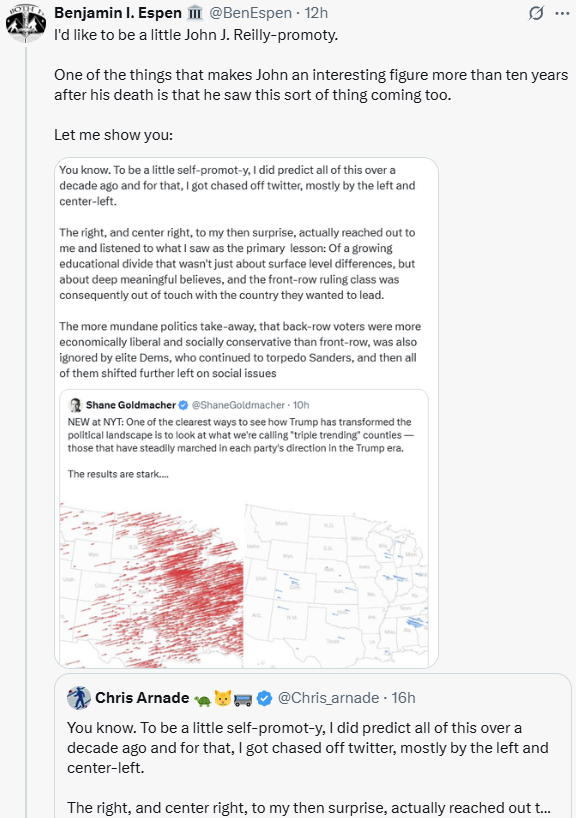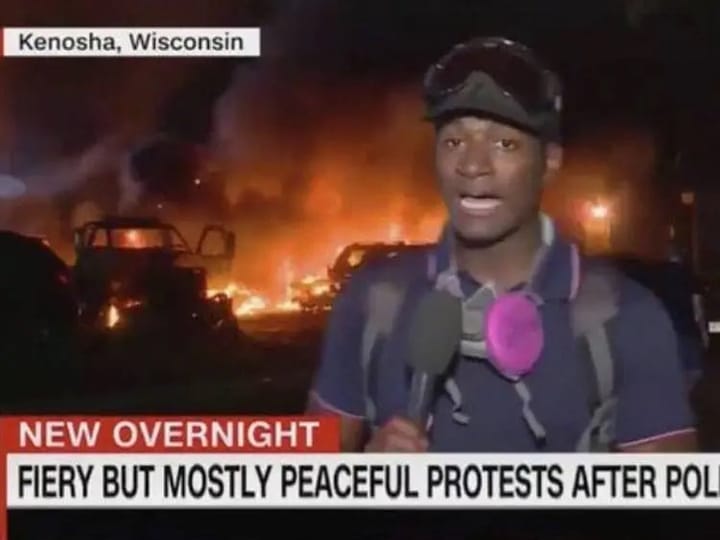The Long View 2004-02-09: We Don't Deserve These People
Thomas Friedman's 2004 sentiment about the honor our military deserves probably has something to do with how much money the Defense Department spends on sporting events and movies these days.
We Don't Deserve These People
So said Thomas Friedman in The New York Times yesterday, contrasting the sterling character of the members of the US armed forces (increasingly members of Strauss & Howe's Millennial Generation, let us note) with the shiftless and no-account nature of the American body politic. He puts it this way:
I was actually at the Super Bowl. Yup. And I too was upset about the halftime show -- but not just because of Janet Jackson's antics. After the show ended, I said to my wife: How can we present something to America and the world that is this frivolous and gross when we have 115,000 U.S. soldiers at war in Iraq, dying at one per day? I realize this is irrational -- there's no rule that says the Super Bowl show must honor America's soldiers at war. But that halftime show has become a kind of national moment and the grotesque way it came out really captured what has bothered me most about how this war is being conducted: The whole burden is being borne by a small cadre of Americans -- the soldiers, their families and reservists -- and the rest of us are just sailing along, as if it has nothing to do with us.
I suspect Thomas Friedman is still far from seeing that the Massachusetts Supreme Judicial Court's decision in the Goodridge case (the one that mandated same-sex marriage) was more of a national embarrassment than anything that Janet Jackson could do. However, I would not be surprised if he eventually came around to that view. In a decade like this, what is inconceivable one year can become blindingly obvious five years later.
What's interesting about the Goodridge opinion is that the court chose to pull the trigger; the time for half-measures were over, as far as the justices were concerned. This is precisely the attitude that led George Bush to treat the terror threat as a world war, rather than as a police problem. The Massachusetts justices for the majority were, for the most part, born a few years before George Bush. Still, for good and ill, what we are seeing here is Baby Boomer government.
* * *
Speaking of George Bush, I thought that many of the reviews of his interview by Tim Russert of Meet the Press were surprisingly negative. Few commentators are so friendly to Bush as is Peggy Noonan, but she said:
The president seemed tired, unsure and often bumbling. His answers were repetitive, and when he tried to clarify them he tended to make them worse. He did not seem prepared.
She has a theory that explains why so many Republicans seem to have trouble tying their rhetorical shoelaces:
Speeches are the vehicle for philosophy. Interviews are the vehicle of policy. Mr. Kerry does talking points and can't give an interesting speech. Mr. Bush can't do talking points and gives speeches full of thought and assertion.
This was a plausible argument for Ronald Reagan, who really was a pretty good copywriter, even though he did not write his own major addresses. It's a little less convincing in connection with GWB. Whatever his other merits, an excessive attention to political philosophy is not one of them.
In any case, what most struck me about the interview was this exchange toward the end:
President Bush: No, I'm not going to lose.
Russert: If you did, what would you do?
President Bush: Well, I don't plan on losing. I have got a vision for what I want to do for the country. See, I know exactly where I want to lead. I want to lead us I want to lead this world toward more peace and freedom. I want to lead this great country to work with others to change the world in positive ways, particularly as we fight the war on terror, and we got changing times here in America, too.
Perhaps I am misreading this, but it looks to me as if the interviewer were asking for a pro forma assurance that the president would accept the results of an election, and the president did not say "yes."
* * *
Meanwhile, back at the actual war, a perversely hopeful sign has emerged in the form of an internal memo from the insurgency. An analysis appears in today's New York Times:
The Americans say they believe that Abu Musab al-Zarqawi, a Jordanian who has long been under scrutiny by the United States for suspected ties to Al Qaeda, wrote the undated 17-page document. Mr. Zarqawi is believed to be operating here in Iraq.
There is a cottage industry in Iraq that produces documents that purport to come from the old regime and the current jihad. These forgeries say things the occupation authorities want to hear, so those authorities have been very slow to endorse any captured document. If they are confidant enough to release this one, then it is probably worth taking seriously. The gist of the document seems to be that the insurgents are having trouble recruiting. They are even being denied passive support from Iraq's Sunnis. Furthermore, the window of opportunity for the insurgents is closing as the Coalition forces are replaced by local forces as peacekeepers:
"By God, this is suffocation!" the writer says.
But there is still time to mount a war against the Shiites, thereby to set off a wider war, he writes, if attacks are well under way before the turnover of sovereignty in June. After that, the writer suggests, any attacks on Shiites will be viewed as Iraqi-on-Iraqi violence that will find little support among the people.
"We have to get to the zero hour in order to openly begin controlling the land by night, and after that by day, God willing," the writer says. "The zero hour needs to be at least four months before the new government gets in place."
That is the timetable, the author concludes, because, after that, "How can we kill their cousins and sons?"
All of this chimes with the confusing reports last week that an assassination attempt had been made against Shiite Grand Ayatollah Ali al-Sistani, reports that were later denied. If the point of the exercise is to start a civil war, then the mere rumor of an attempt to kill the Shiite religious leader might suffice to start intercommunal riots. It is not impossible that such a strategy would succeed. However, if the insurgents really are contemplating such a thing, they are in effect admitting failure.
* * *
I have just a few comments about the Imminent Threat controversy that has dragged on in the wake of recent remarks by arms inspector David Kay and CIA chief George Tennet. At the risk of restating the record yet again, let me repeat that President Bush said he it was necessary to change the regime in Iraq before the threat it posed became imminent. He also said that the current threat included WMD stockpiles. However, Iraq's current arsenal was never the justification for the war. And no, that isn't a later rationalization.
The scary aspect of the imminence hoax is that the Democratic candidates now how have to argue that the situation the Coalition forces found in Iraq was tolerable. Moreover, they have to promise to be more cautious about the WMD threat, though in fact the recent revelations from Iran and Libya show that the situation is worse than we had imagined. This attitude has met with a positive response among most of the media, and a fraction of the electorate whose size we will discover in November.
Maybe these people are exactly what we deserve.
Copyright © 2004 by John J. Reilly



Comments ()